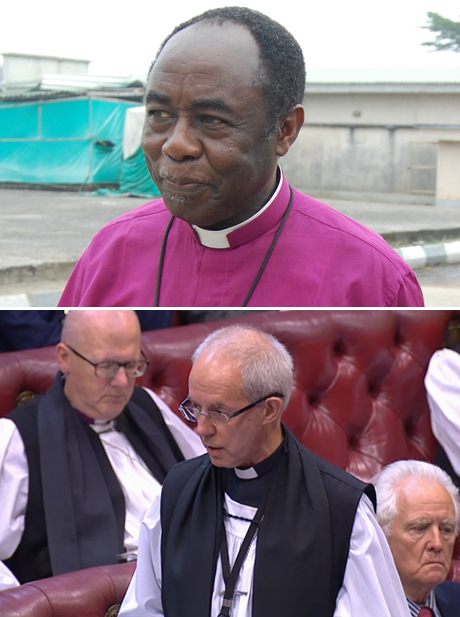Conflicts between farmers and herders in Nigeria have resulted in the displacement of 3,000 and the deaths of anywhere between 17 and 70-plus in recent days, and an attack on a military compound by Boko Haram that may have resulted in the deaths of more than 100 soldiers. Anglican News reports:
The death toll in Nigeria continues to rise in clashes between Fulani nomadic herdsmen and settled farmers. The AFP news agency reported on Saturday that scores of people were killed in four days of violence last week across northeast Nigeria. And there are conflicting reports that more than one hundred soldiers are missing, feared dead, after Boko Haram overran a military compound in the area.
From the AFP News Agency story linked from Anglican News:
Adamawa state has been the site of a series of deadly clashes between herders and farmers in violence that has intensified over recent months.
On Monday six people were killed in clashes between Fulani herdsmen and ethnic Bachama farmers in neighbouring Demsa and Numan communities in Adamawa state.
The two districts are close to Lau in Taraba and have seen repeated killings and reprisals in recent months, including last December when scores were killed.
The July killings in Taraba are the latest in a long-running battle for land and resources that have put President Muhammadu Buhari under pressure as elections approach next year.
Archbishop Justin Welby has urged Britain to support Nigeria to help bring the violence to an end, especially the attacks on Christians in the country, which have included his friend and fellow bishop, and resulted in the death of a neighbor. From a July 4 report:
The Archbishop of Jos, Benjamin Kwashi, was inside his compound when the raiders struck. He was unhurt. His home has been targeted before. In one incident, in 2006, a mob descended on his house, beat his children and assaulted his wife. This latest attack is being blamed on Fulani herdsmen.
Justin Welby:
[in response to Baroness Cox:] “The minister has rightly said how complex the situation is, but can she answer more specifically what assistance the UK government can do in the short-term to strengthen the government of Nigeria in its role in enforcing security and local mediation; in the medium-term to ensure reconciliation which will enable the lives and economies of farmers and herders to be protected; and in the long term, actively and tangibly to support regional efforts to combat the effects of climate change – the development of desertification which is exacerbating ancient rivalries?”
Responding on behalf of the government, the Conservative Peer Baroness Goldie said that she was “very concerned” about the archbishop’s report and that that the UK government had offered support to Nigeria’s Vice President. “We stand ready to support Nigerian-led initiatives,” she said.
She explained that the government was urging the European Union and the United Nations’ Office for West Africa and the Sahel “to extend their influence and develop sustainable solutions to the conflict, including support for community conflict resolution initiatives which we believe are essential.”
She sought to assure the archbishop that “we are considering options for how the UK can support reconciliation at local levels. We cannot ignore the fundamental causes for the violence and so we are reviewing HM Government’s support for Nigeria in, for example, as the Most Reverend Primate suggests, tackling climate change.”
Images: Archbishops Benjamin Kwashi (top) and Justin Welby, from Anglican News links.

